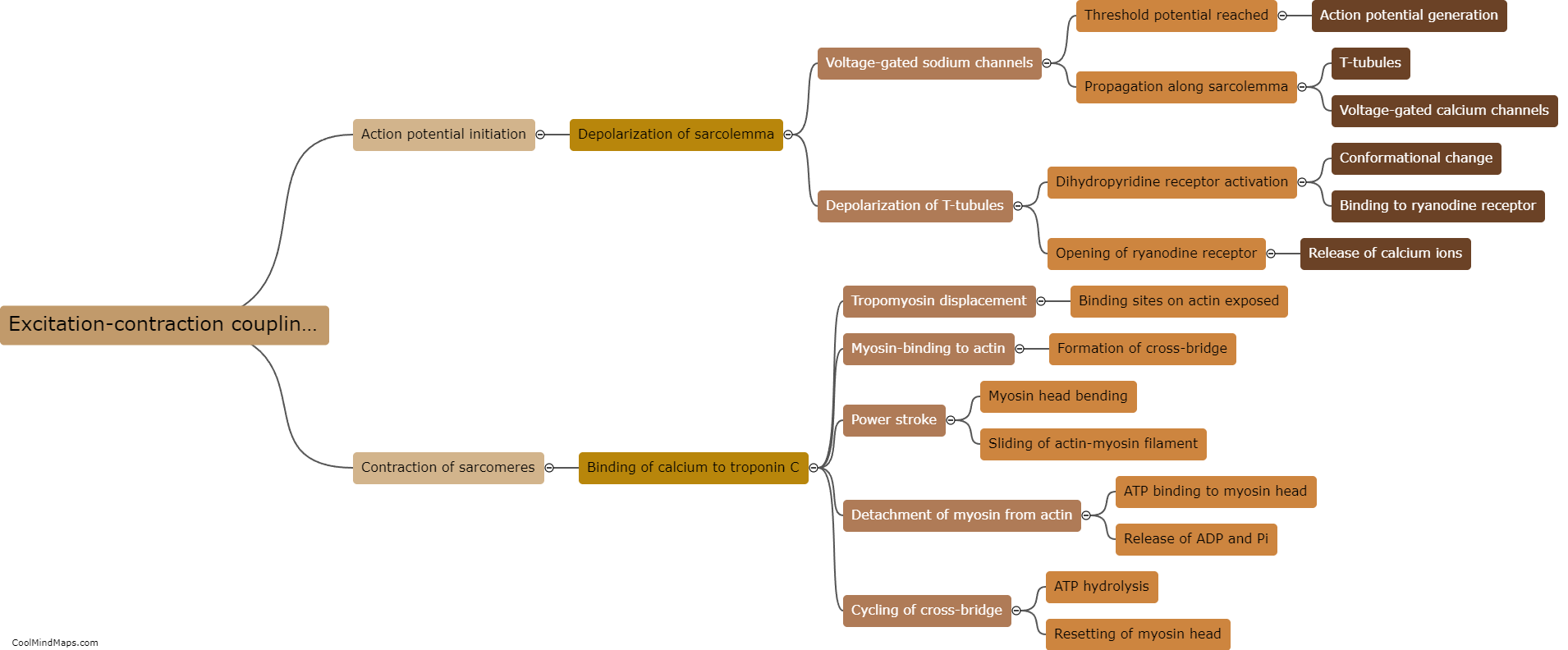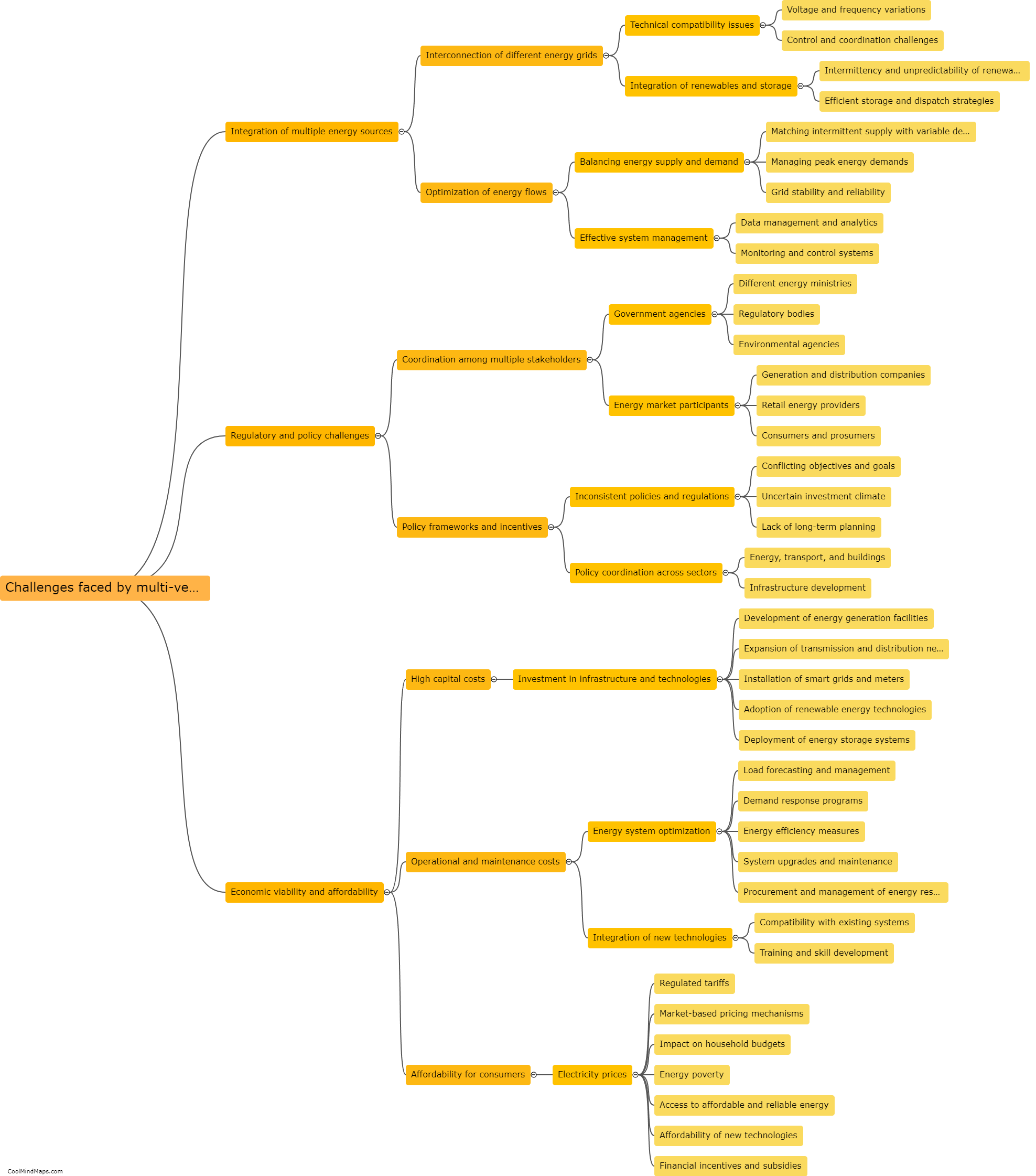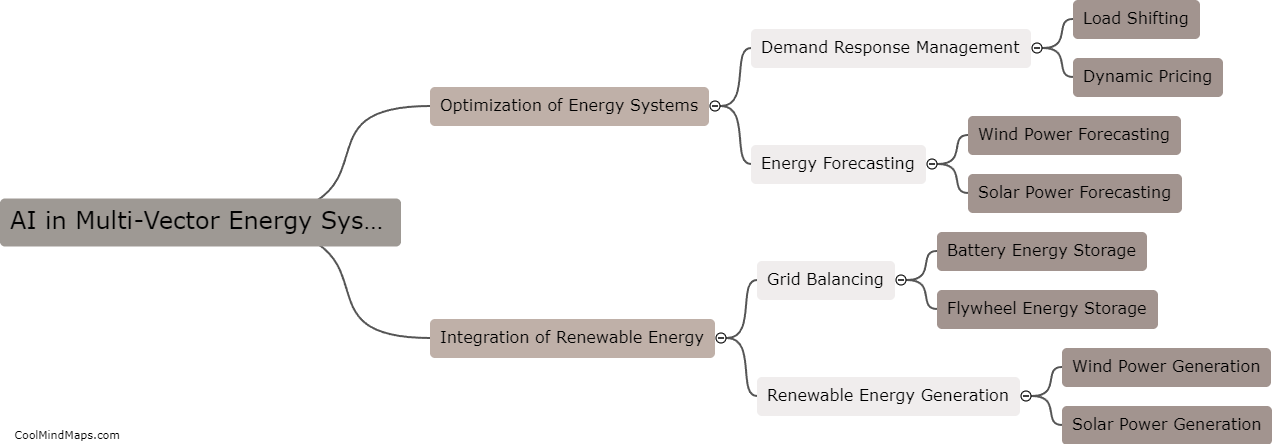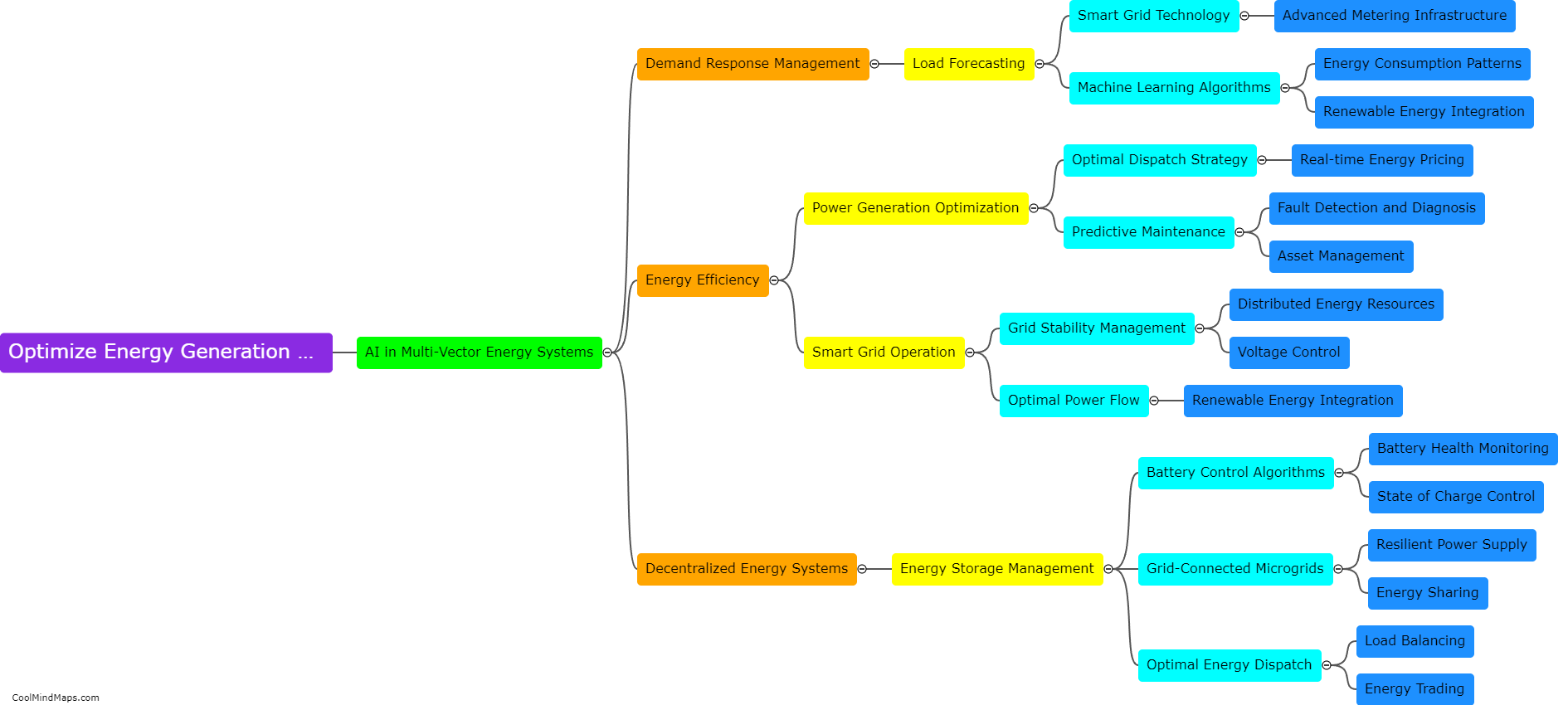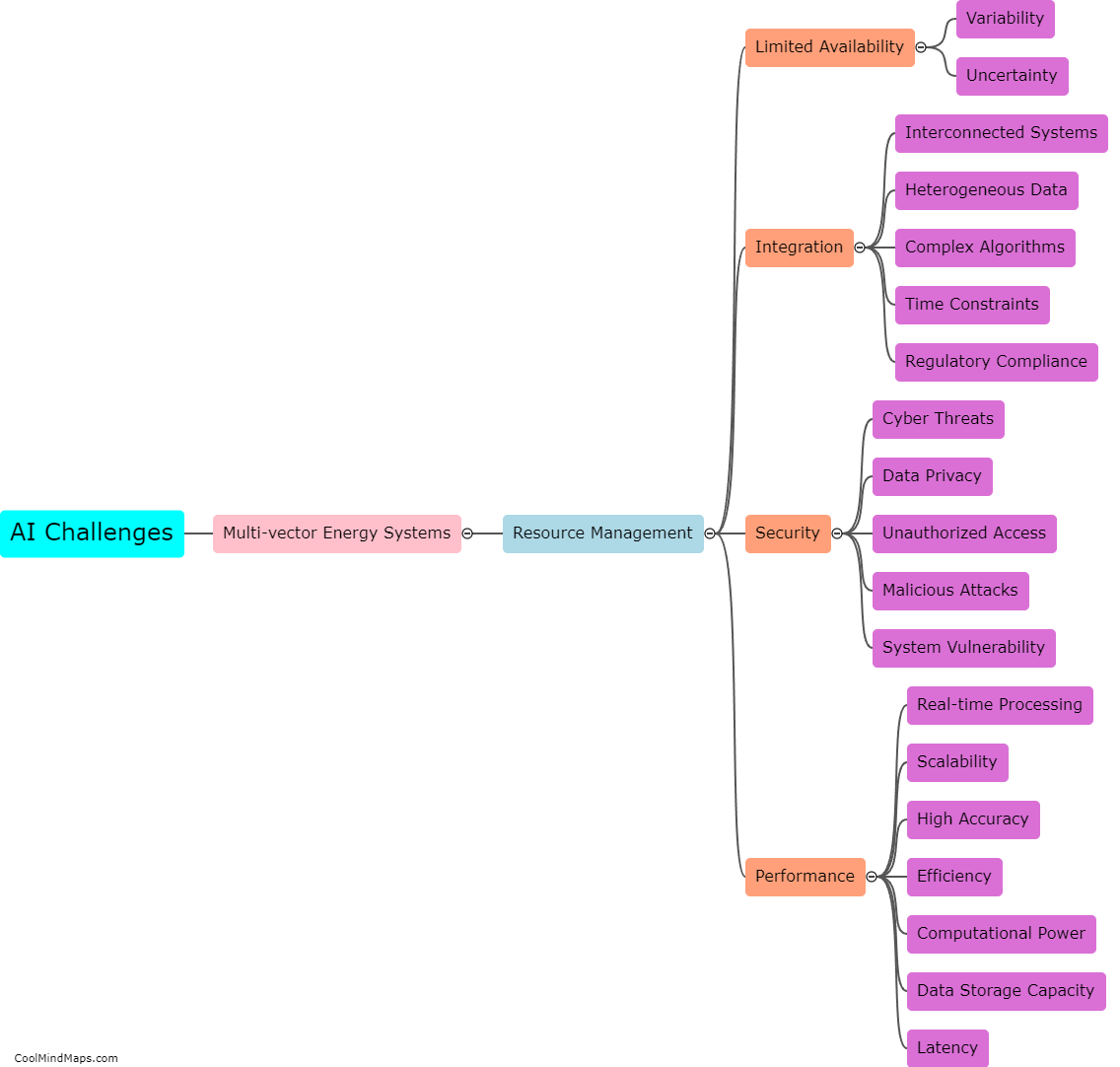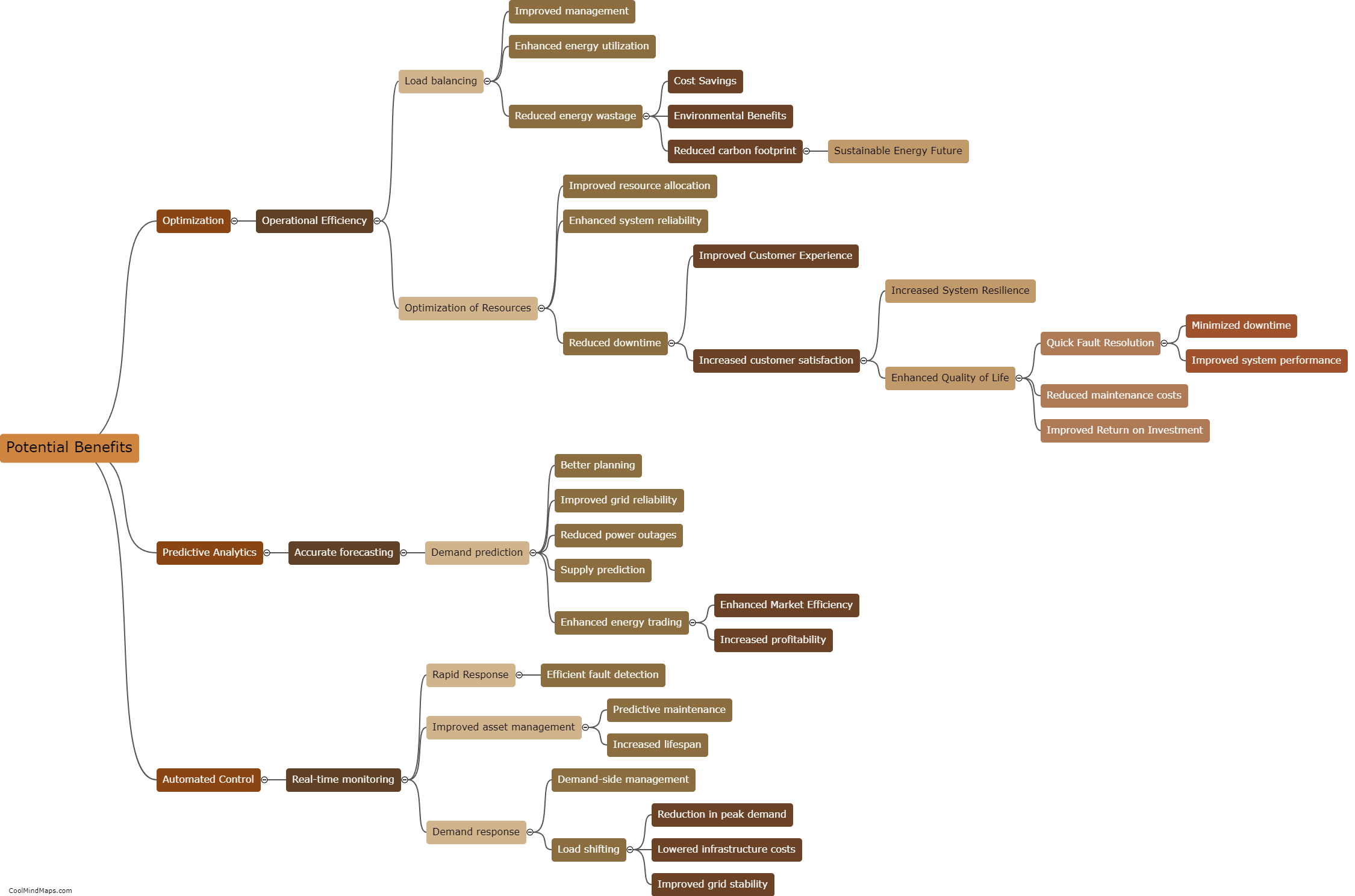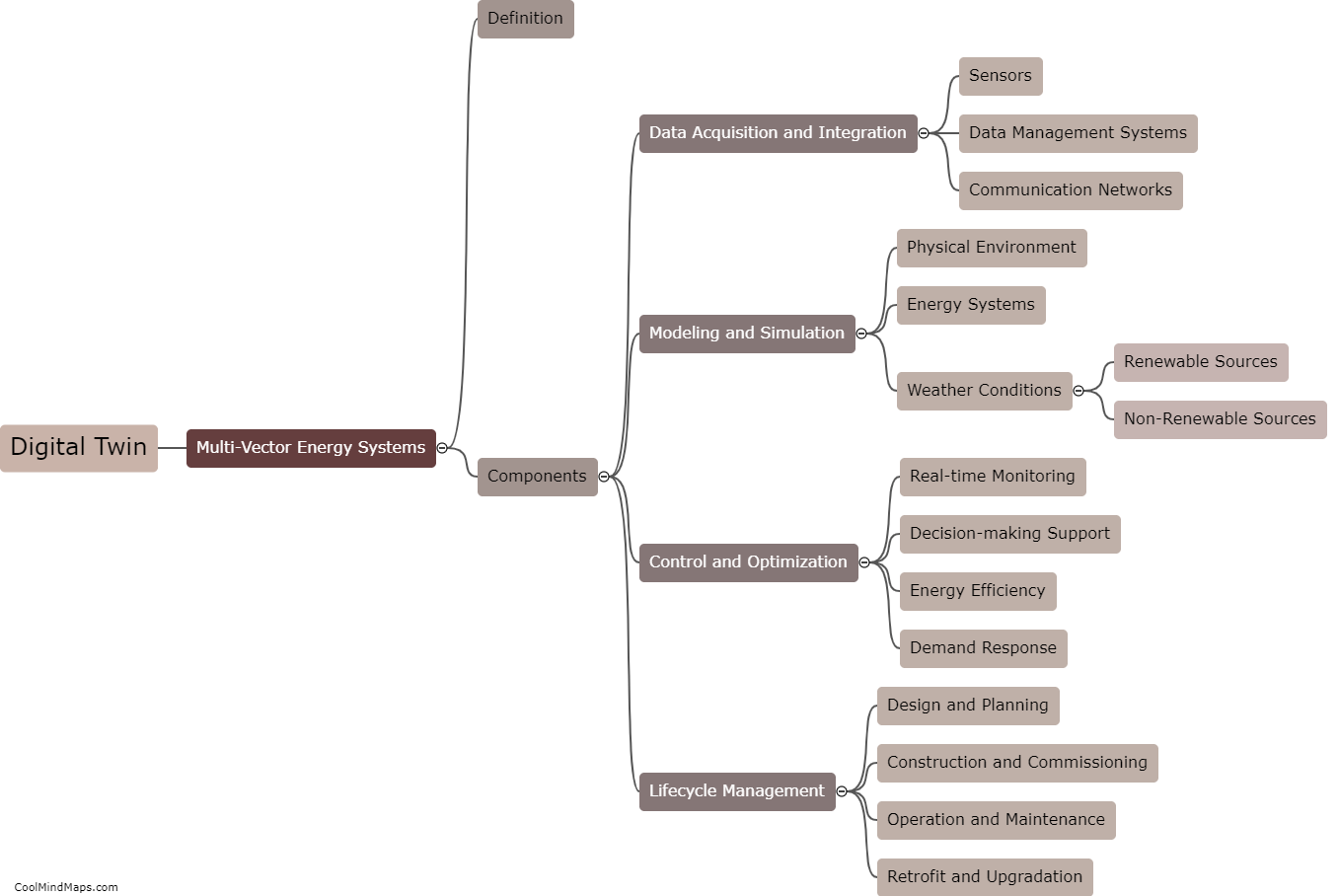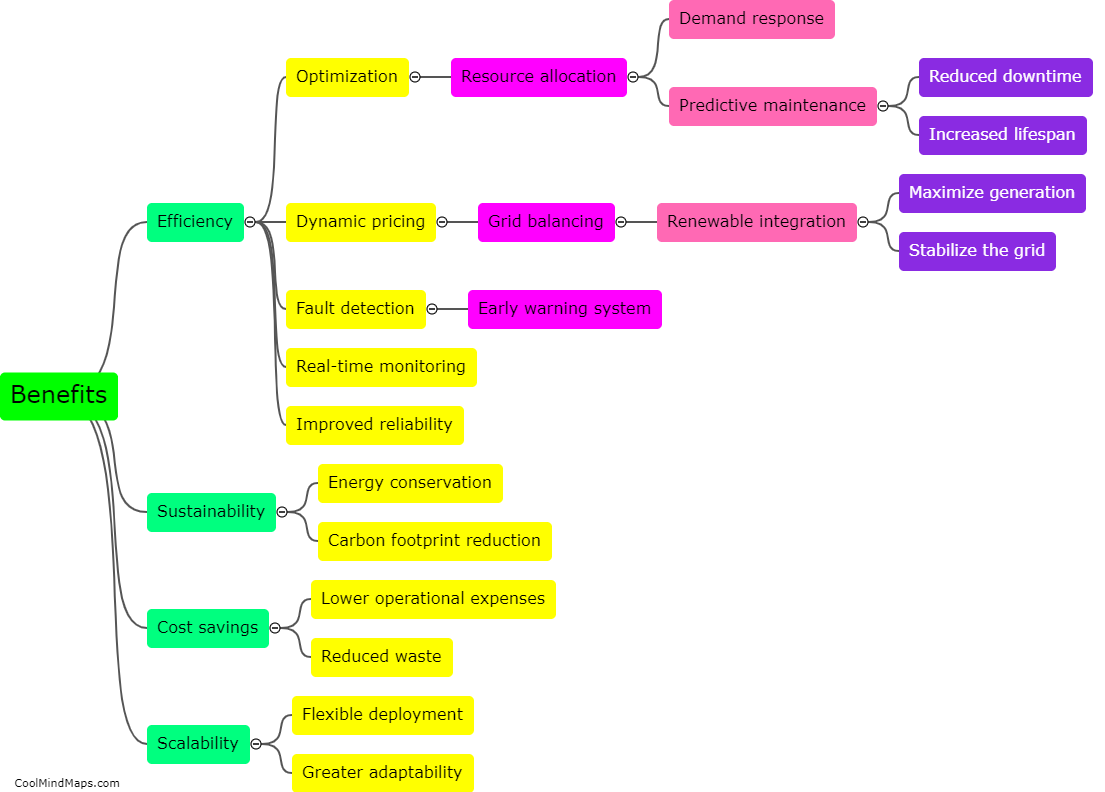How can AI improve the efficiency and sustainability of multi-vector energy systems?
AI has the potential to greatly enhance the efficiency and sustainability of multi-vector energy systems. By analyzing large amounts of data from various sources such as power plants, weather patterns, and energy consumption patterns, AI can optimize the production and distribution of energy across multiple vectors such as electricity, heat, and transportation. AI algorithms can automatically adjust energy generation and consumption based on real-time demand and supply, minimizing waste and reducing greenhouse gas emissions. Additionally, AI can assist in predicting energy demand, enabling better planning and resource allocation. Overall, by enabling real-time monitoring, precise control, and intelligent decision-making, AI has the capability to drive significant improvements in the efficiency and sustainability of multi-vector energy systems.
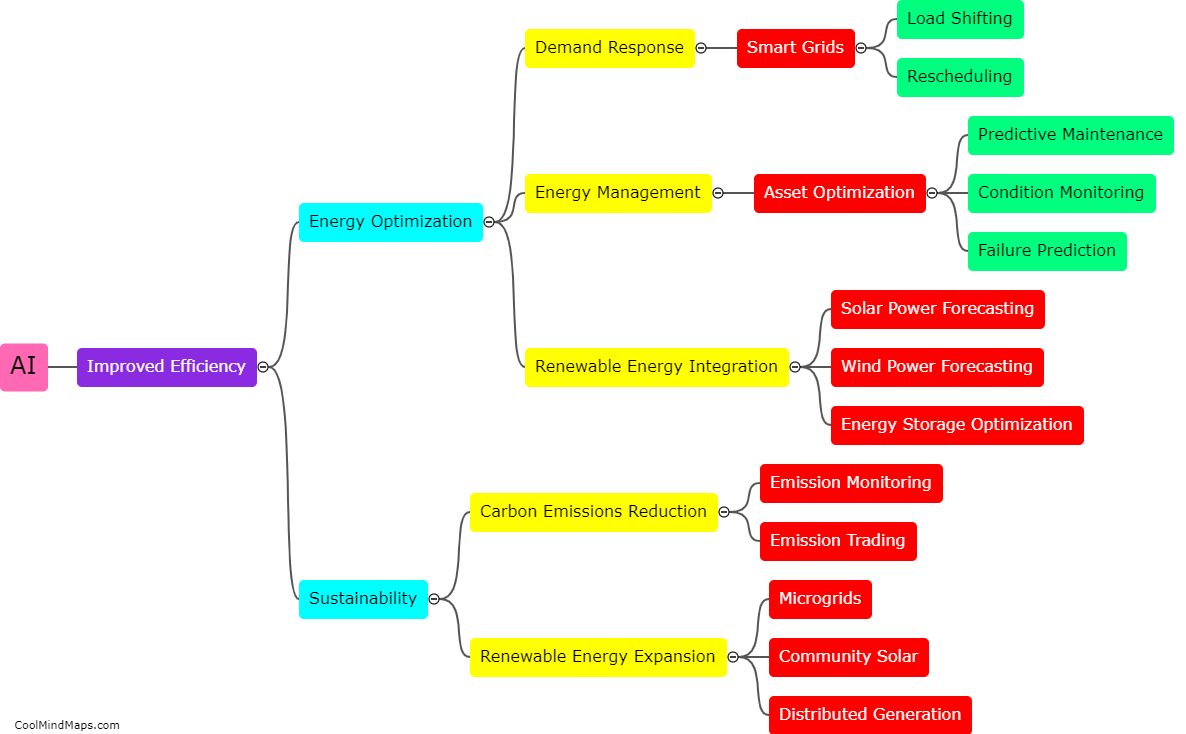
This mind map was published on 22 October 2023 and has been viewed 102 times.


